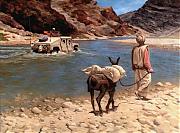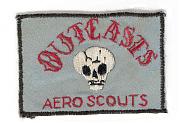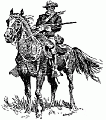The Marines have some experience at this.Originally Posted by nichols
Combined Action Companies (CAC).
"These Marines entered into the life of the village where they were assigned, and became an integral part of its defenses. To the Popular Force platoons they could offer training in weaponry and tactics, and effective communications -- vital for supporting fires or reinforcements; and to the communities involved, they offered a very real Marine-to-the-people civic action program, including medical aid." The Marines in Vietnam 1954-1973: An Anthology and Annotated Bibliography. USMC, 1973, 49.
Also, known as Combined Action Platoons and Combined Action Program.
The Marine Corpsí Combined Action Program and Modern Peace Operations-Common Themes and Lessons
The mixed performance of U.S. forces in recent low intensity conflicts or "small wars", i.e. Vietnam (counterinsurgency) and Somalia (peace operation), has been due in part to a failure to understand the political, economic, social, and cultural factors at work in the area of operations. The Combined Action Program (CAP) of the Vietnam War has been frequently cited by military historians as an example of a successful small wars operation, this because the CAP did have cultural aspect. The U.S. Marine Corps-led Unified Task Force (UNITAF) portion of the 1992-1995 UN operation in Somalia was successful partly because it applied lessons learned from Marine Corps small wars experience from the Central American "Banana Wars" of the 1930's and the CAP in Vietnam.



 ....
....

 These have the effect of cognitively teaching the troops the herd mentality.
These have the effect of cognitively teaching the troops the herd mentality.








Bookmarks